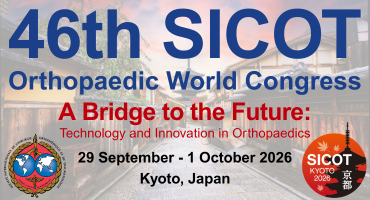
Update in Orthopaedics
The role for arthroscopic partial meniscectomy in knees with degenerative changes: a systematic review
Lamplot JD, Brophy RH.
Bone Joint J. 2016 Jul;98-B(7):934-8. doi: 10.1302/0301-620X.98B7.37410.
Abstract
AIMS: Patients with osteoarthritis (OA) of the knee commonly have degenerative meniscal tears. Arthroscopic meniscectomy is frequently performed, although the benefits are debatable. Recent studies have concluded that there is no role for arthroscopic washout in osteoarthritis of the knee. Our aim was to perform a systematic review to assess the evidence for the efficacy of arthroscopic meniscectomy in patients with meniscal tears and degenerative changes in the knee.
PATIENTS AND METHODS: A literature search was performed, using the PubMed/MEDLINE database, for relevant articles published between 1975 and 2015. A total of six studies, including five randomised controlled trials and one cross-sectional study of a prospective cohort, met the inclusion criteria. Relevant information including study design, operations, the characteristics of the patients, outcomes, adverse events and further operations were extracted.
RESULTS: The degree of osteoarthritis in the patients who were included and the rate of cross over from one form of treatment to another varied in the studies. Two randomised controlled trials showed a benefit of arthroscopic surgery in patients with limited degenerative joint disease, compared with conservative treatment. One cross-sectional study showed that patients with less severe degenerative changes had better outcomes.
CONCLUSION: Patients with symptomatic meniscal tears and degenerative changes in the knee can benefit from arthroscopic meniscectomy, particularly if the osteoarthritis is mild. A trial of conservative management may be effective and should be considered, especially in patients with moderate osteoarthritis.
Cairo, Egypt
‘Degenerative tear in the posterior horn of the medial meniscus associated with Knee OA’ is a statement that we frequently encounter and we always ask ourselves: should we operate on this type of tear or not?
Searching for an evidence based answer is what attracted me to read this article. The authors reviewed the literature available over the last 40 years going through all the articles published in English and assessing the results of either arthroscopic partial meniscectomy or conservative management of meniscal degenerative tears in mild to moderate osteoarthritic knees. Using the strict inclusion criteria of randomised control trials and prospective cohort studies published in peer-reviewed journals with a minimum of level II evidence, they were able to select only six studies. The Cochrane Collaboration’s tool for assessing risk of bias in randomised trials was used to assess the quality of the papers included. Allocation was adequately concealed in five studies. However, patients and outcome assessors were only blinded in one study. A total of four of the six studies clearly explained sample size calculations.
Despite failing to perform a ‘meaningful’ meta-analysis due to the heterogeneity of the primary outcomes and the differences in patient populations in the selected six articles, they were able to reach a reasonable answer. They concluded that partial meniscectomy will be of benefit only if the symptomatic degenerative meniscal tear is present in association with mild osteoarthritis. Moreover, because most patients undergoing conservative treatments within the included studies had clinically significant improvements, physical and medical forms of treatment should be used for most patients prior to operative intervention, particularly in those with moderate OA.

















